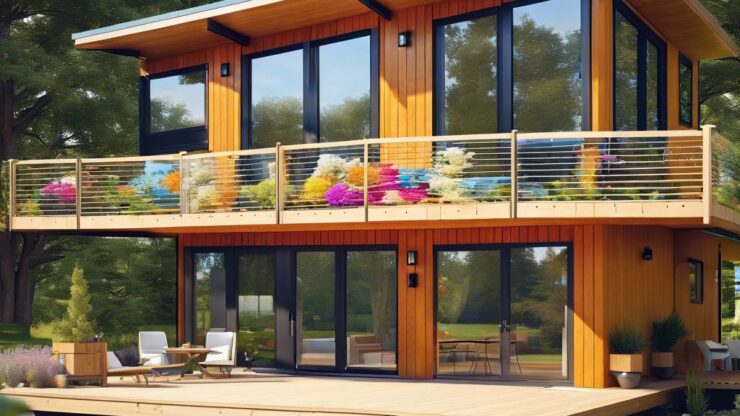Understanding Modular and Manufactured Homes
In today’s fast-paced world, the demand for affordable and efficient housing solutions is on the rise. Modular and manufactured homes have emerged as modern alternatives to traditional housing, offering a blend of affordability, sustainability, and flexibility. These homes are constructed in a factory setting and transported to the site, leading to reduced construction time and cost. This approach not only minimizes waste but also allows for innovative designs and customizations that cater to diverse needs.
Key Differences Between Modular and Manufactured Homes
While the terms ‘modular’ and ‘manufactured’ are often used interchangeably, they refer to distinct types of housing. Understanding these differences is crucial for potential homeowners looking for viable alternatives to traditional housing.
- Construction Method: Modular homes are built in sections (modules) and assembled on-site, complying with local building codes, while manufactured homes are built entirely in a factory and must adhere to federal building standards.
- Financing Options: Modular homes are often treated like traditional homes for financing purposes, making them eligible for conventional mortgages. In contrast, manufactured homes may require specialized loans.
- Appreciation Value: Modular homes typically appreciate in value similarly to site-built homes, whereas manufactured homes may depreciate over time, depending on their placement and condition.
The Rise of Sustainable Living
As environmental concerns continue to influence consumer choices, modular and manufactured homes are stepping up to the plate with sustainable building practices. Many manufacturers are now incorporating eco-friendly materials and energy-efficient designs into their homes. This shift not only caters to the growing market of environmentally conscious buyers but also contributes to reduced utility costs over time.
Furthermore, the modular construction process allows for better control of material waste, making it a more sustainable option compared to traditional homebuilding. As more individuals seek homes that align with their values, the appeal of modular and manufactured homes continues to grow.
Disclaimer
This article has been created or edited with the support of artificial intelligence and is for informational purposes only. The information provided should not be considered investment advice. Please seek the support of a professional advisor before making any investment decisions.






